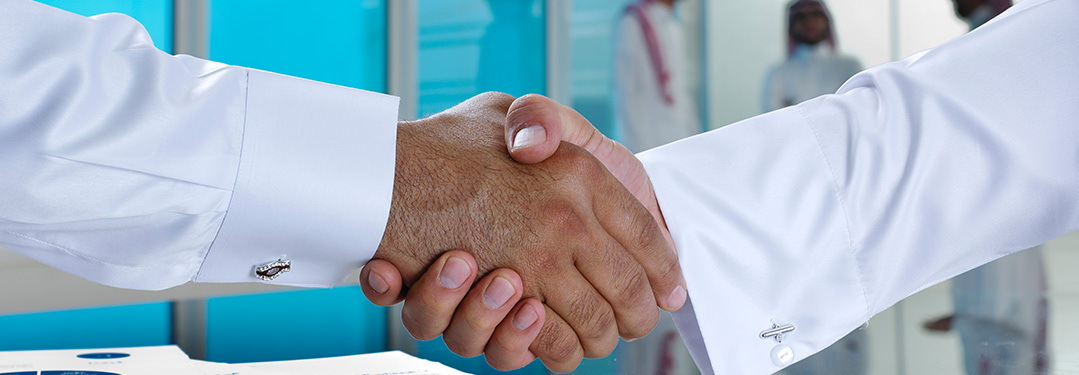
How to conduct a job interview professionally?

You may think that the job interview is only based on your qualifications and prior work experience, and that these are the criteria that influence the hiring manager's decision to hire you. But this is not entirely true. Conducting a job interview requires a number of factors, including the impression you make on the recruiter, your ability to answer questions, and how you interact with those around you.
So, in this article, we have included the best tips and strategies for conducting a professional and successful job interview, which include:
Conduct a search for a company
During a job interview, recruiters are supposed to ask you questions about the company to see if you did your research on the company before the interview. This is frequently seen in questions such as "Why did you apply for this position?" "What do you know about our company?" "What do you know about the company's vision?" and so on. In fact, this kind of question serves as a primary test.
It is not intended for you to become an expert in their work or all of the details of the company, but rather to have a broad perspective that demonstrates your interest in this place and the position for which you are applying. If you do not respond to these types of questions, you will make a negative first impression.
You can do a search for the company on their website, on social media pages and by searching on Google.
Review your resume
Your resume is often the reason a recruiter contacts you for a job interview. So, it should be prepared in advance according to the requirements and description of the job you want to apply for. You do not have to rephrase all of your experiences and skills on your resume to match the job requirements, but you should emphasize the skills that are most relevant.
It is important to bring at least three copies of your resume to a job interview, according to career advisor Amanda Augustine, and not to assume that the interviewer has seen your resume.
Explain why you are interested in conducting the interview
After reviewing your resume by the recruiter, they may ask you why you want to work in this position or for the organization as a whole. You will benefit from your company research in this step. To respond to this question, you must provide at least two specific justifications. It is advised to consider advantages in the new job that you lack in your current position and express them in a positive way before the job interview to prepare for this question. If your relationship with co-workers is not good, you could say that you are looking for a more collaborative team to have a more motivating work environment, which enables you to accomplish many tasks professionally.
Prepare to introduce yourself
"Could you introduce yourself?". Any job interview will inevitably include this question, so you must be ready to respond to it in a way that is both creative and practical. In reality, a lot of people make the mistake of being talkative, talking about a lot of things that might not be relevant to the position and do not to tell the recruiter crucial details about you, like your marital status, hometown, family size, etc. The candidate is usually asked this question in a job interview to determine how he will present himself and his experience and skills related to the position. So, do not dwell in this question and instead, give a brief overview of the most significant experiences and abilities you have that will be valuable to the company you want to work for.
Focus on your strengths
It is common in a job interview for a recruiter to ask you about your most important strengths and weaknesses. Here, you should begin with one weakness point and conclude by highlighting your strengths.
Be aware that it is crucial to avoid mentioning any weaknesses that can prevent you from accepting this position, such as "I am an emotional person" or "I am an introvert and do not interacting with people." But you could say, for example, "I have a problem with perfectionism, if I don't get it right, I feel like I haven't done the right thing, and that puts me under too much pressure most of the time" or " I used to be very self-reliant. This makes me uncomfortable asking others for help and I would rather do it myself, but I am working on it".
The same goes for strengths. It is never advisable to mention traits like "I am a kind person" or "I get along well with kids" as strengths. These characteristics are more personal and will not have a significant impact on your career. As a result, you must highlight your positive traits during the job interview, such as your passion, constant looking for creativity, commitment to your work, punctuality, communication skills, etc.
You should be honest and accurate when answering this question, and talk about your real skills, your strengths and weaknesses - if any - but intelligently and creatively.
Be assertive and take responsibility for the interview
Because all candidates want to be polite during a job interview, they become exaggeratedly negative, and this affects the impression the recruiter takes about them. The employment interview should be approached as a two-way conversation. So, politeness does not imply negativity or the erasure of personality.
Avoid making this mistake by not waiting for the recruiter to ask you precise and thorough questions while you are seated in front of him. Even if you haven't been asked about it, feel free to discuss your experiences and successes as well as anything else you feel is significant. This shows self-confidence and interest in communicating the correct information to the interviewer.
Adopt appropriate body language
When doing a job interview, one of the most crucial things you need to watch out for is body language. Recruiters pay attention to this to see what you do not say about yourself.
Effective uses of body language include making eye contact, sitting up straight, shaking hands with confidence, speaking clearly, utilizing positive gestures like smiling, and communicating with words.
Regarding this matter and how it relates to generating a good first impression, you should also make sure to dress appropriately and formally, even if it is not mentioned in the interview's guidelines. Wearing intense perfumes before a job interview is also inappropriate since some people are sensitive to the scent and because the interview may take place in a tiny, enclosed space, which makes the other party uncomfortable.
Never give up
Do not give up if you have a poor interview for a job that you believe would be a good fit for you. You may send an email explaining why you believe you performed poorly in the interview, why you believe you would be a good fit for the position, and that you would be interested in another opportunity if it became available. Even if you might not receive a response or be given another chance, there is little doubt that if you do not attempt, you will not have any chance at all.



